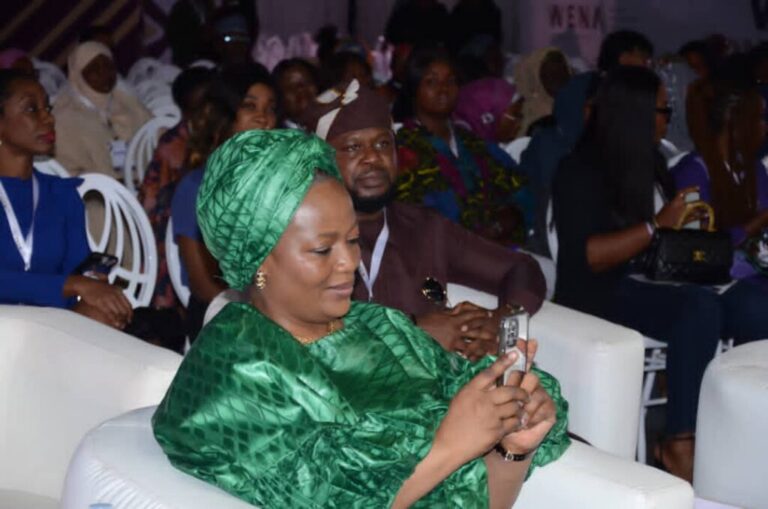At the 5th WenA SME Conference in Abuja, Aisha Babangida, founder of the Women Entrepreneurs Association (WenA), issued a passionate call for governments across Nigeria to adopt gender-inclusive procurement reforms similar to those implemented in Kaduna State — describing them as a proven blueprint for women’s economic advancement and national growth.
Themed “Policy Reforms and Resilience Strategies for SMEs in a New Economy,” the conference brought together entrepreneurs, policymakers, and development partners to explore how targeted reforms can strengthen women’s role in the formal economy.
Babangida commended the Affirmative Action Procurement Reform Initiative, led by UN Women with backing from the African Development Bank (AfDB) and the Women Entrepreneurs Finance Initiative (We-Fi), for its success in Kaduna. The model — which reserves portions of public contracts for women-led businesses, waives registration fees, and mandates female representation on procurement boards — has become a standout case study in inclusive governance.
“Kaduna’s experience shows that when we empower women entrepreneurs, we ignite prosperity for everyone,” Babangida remarked.
She also announced WenA’s upcoming program aimed at training and certifying women entrepreneurs to qualify for government procurement opportunities, emphasizing that Nigeria must move “from policy conversations to concrete implementation.”
Women as Catalysts of Economic Transformation
Highlighting the broader social impact of inclusion, Babangida stressed that reducing unpaid care work and designing care-responsive economic policies are essential for unlocking Africa’s growth potential. She praised UN Women Nigeria for its continued advocacy, while calling for closer collaboration between the government, private sector, and civil society to ensure that policy reforms translate into tangible economic inclusion.
Reflecting on WenA’s early journey, Babangida shared how navigating Nigeria’s complex regulatory and tax systems once posed significant challenges for women-led enterprises.
“Passion alone cannot sustain a business,” she said. “Without supportive systems, innovation struggles to survive. Advocacy remains the bridge between great ideas and real impact.”
Government and Stakeholder Commitments
Representing the Presidency, Chalya Shagaya, Senior Special Assistant to the President on Entrepreneurship Development, Communications, Innovation, and the Digital Economy, reaffirmed the administration’s focus on easing the cost of doing business under President Bola Tinubu’s Renewed Hope Agenda.
“Women-owned SMEs form the heartbeat of our economy,” she noted. “Through fiscal harmonization, energy reforms, and accessible financing, we aim to create an environment where entrepreneurs can thrive, not just endure.”
Officials from the Federal Inland Revenue Service (FIRS) also outlined key components of the new Nigerian Tax Reform Agenda, including simplified tax administration and exemptions for SMEs with annual turnovers below ₦100 million, beginning January 2026.
From the development community, Patience Ekechukwu, representing UN Women Nigeria, highlighted that despite women owning 43% of Nigeria’s micro and small businesses, most remain underfunded and disconnected from formal economic systems.
“Visibility is not the challenge — transformation is,” she said. “We must align policy with execution to ensure inclusion leads to measurable progress.”
A Call for Action
The conference concluded with a unified call to expand inclusive procurement, introduce gender-responsive fiscal incentives, and implement reforms that make Nigeria’s business environment fairer and globally competitive.
Babangida’s message was clear: the path to a stronger economy begins with empowering women at the center of national development — not as beneficiaries, but as key drivers of progress.

